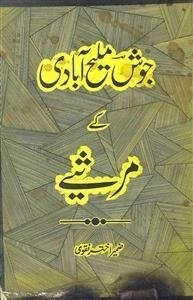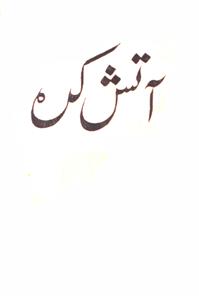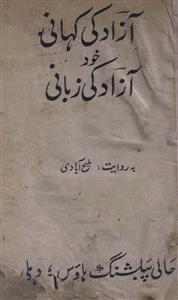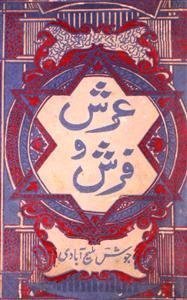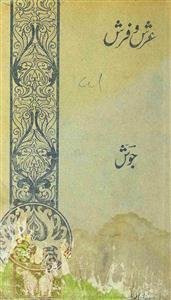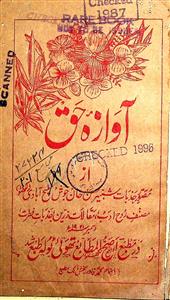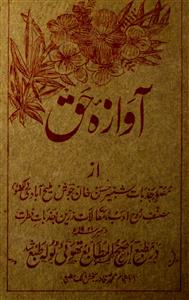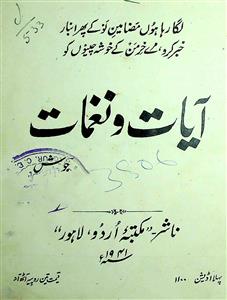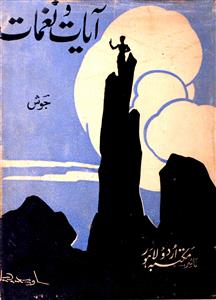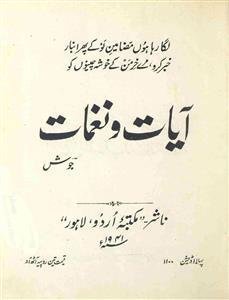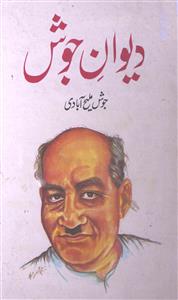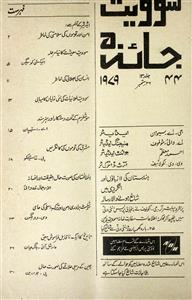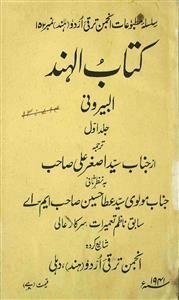 For any query/comment related to this ebook, please contact us at haidar.ali@rekhta.org
For any query/comment related to this ebook, please contact us at haidar.ali@rekhta.org
About The Book
رثائی کی تاریخ و تحقیق میں پیش نظر ضمیر اختر نقوی کی کتاب"جوش ملیح آبادی کے مرثیے" اہمیت کی حامل ہے۔جس میں مصنف نے قدیم وجدید مرثیہ نگاروں بالخصوص جوش ملیح آبادی کی جدید مرثیہ نگاری کا فنی اور موضوعاتی تجزیہ پیش کیا ہے۔یہ کتاب دراصل جوش پر کئے ہوئے بہت سے اعتراضات کا جواب بھی ہے ۔اس کے علاوہ ضمیر اختر نےجوش کے مرثیوں کے ساتھ ان کے رباعیات و سلام کو بھی اس کتاب میں یکجاکردیا ہے۔مصنف نے " فرہنگ مراثی جوش "ترتیب دے کرنہ صرف اہم تحقیقی اور تاریخی کارنامہ انجام دیا ہےبلکہ ایک روایت کومحفوظ بھی کردیاہے۔
About The Author
Sahbbir Hasan Khan (1898-1982), better known as Josh Malihabadi, was born in a family of feudal masters at Malihabad near Lucknow. After receiving his initial instructions in conventional subjects at home, he continued his education in snatches at several places like Sitapur, Lucknow, Agra, and Aligarh. Following his father’s death and the attendant issues emerging thereafter, he had to discontinue his education. In 1924, he left for Hyderabad to join Dar-ul-Tajuma, Osmania University’s bureau of translation. Following a controversy, he had to leave this institution and return to his native place. In 1936, he started publishing a journal called Kaleem from Delhi which ran for three years. In 1941, he joined Shalimar Pictures at Poona and wrote lyrics for films. In 1948, he was appointed editor of Aajkal, a literary journal published by the Ministry of Information and Broadcasting, Government of India and worked there for eight years. In 1956, he migrated to Pakistan where he was appointed as literary advisor of Urdu Board. He travelled to India in 1967 and gave an interview in Bombay which led to his losing job in Pakistan. Josh breathed his last in Islamabad where he was buried.
Carrying forward the legacy that he inherited from his great grandfather, grandfather and father, Josh started writing poetry at an early age. He was labelled as a poet of revolution because of his thematic concerns and his grandiloquence. He is notable among the Urdu poets for his acute socio-political concerns on the one hand and romantic preoccupations on the other. For expressing himself with conviction, he developed an exclusive kind of charged diction and a new set of implicated metaphors. These qualities imparted an element of uniqueness to his poetry. Josh published several collections of his poetry which include Rooh-e-Adab, Shaayer ki Raatein, Naqsh-o-Nigar, Shola-O-Shabnam, Fikr-O-Nishat, Junoon-O-Hikmat, Harf-O-Hikaayat, Aayaat-O-Naghmaat, Arsh-O-Farsh, Raamish-O-Rung, Sumbul-O-Salaasil, Saif-O-Suboo, Surood-O-Kaharosh, Sumoom-O-Sabaa, Tulu-i-Fikr, Qatra-O-Qulzum, and Nawaaredaat-e-Josh. He also wrote in prose. His prose works include Nujoom-O-Jawahar, Mauja-i-Fikr, Auraaq-e-Sahar, Ilhaam-O-Maqaalaat-e-Zarreen, and Ishaaraat. Josh’s autobiography, Yaadon ki Baraat, created lots of interest among his readers, and it keeps them curious even now.
 For any query/comment related to this ebook, please contact us at haidar.ali@rekhta.org
For any query/comment related to this ebook, please contact us at haidar.ali@rekhta.org
